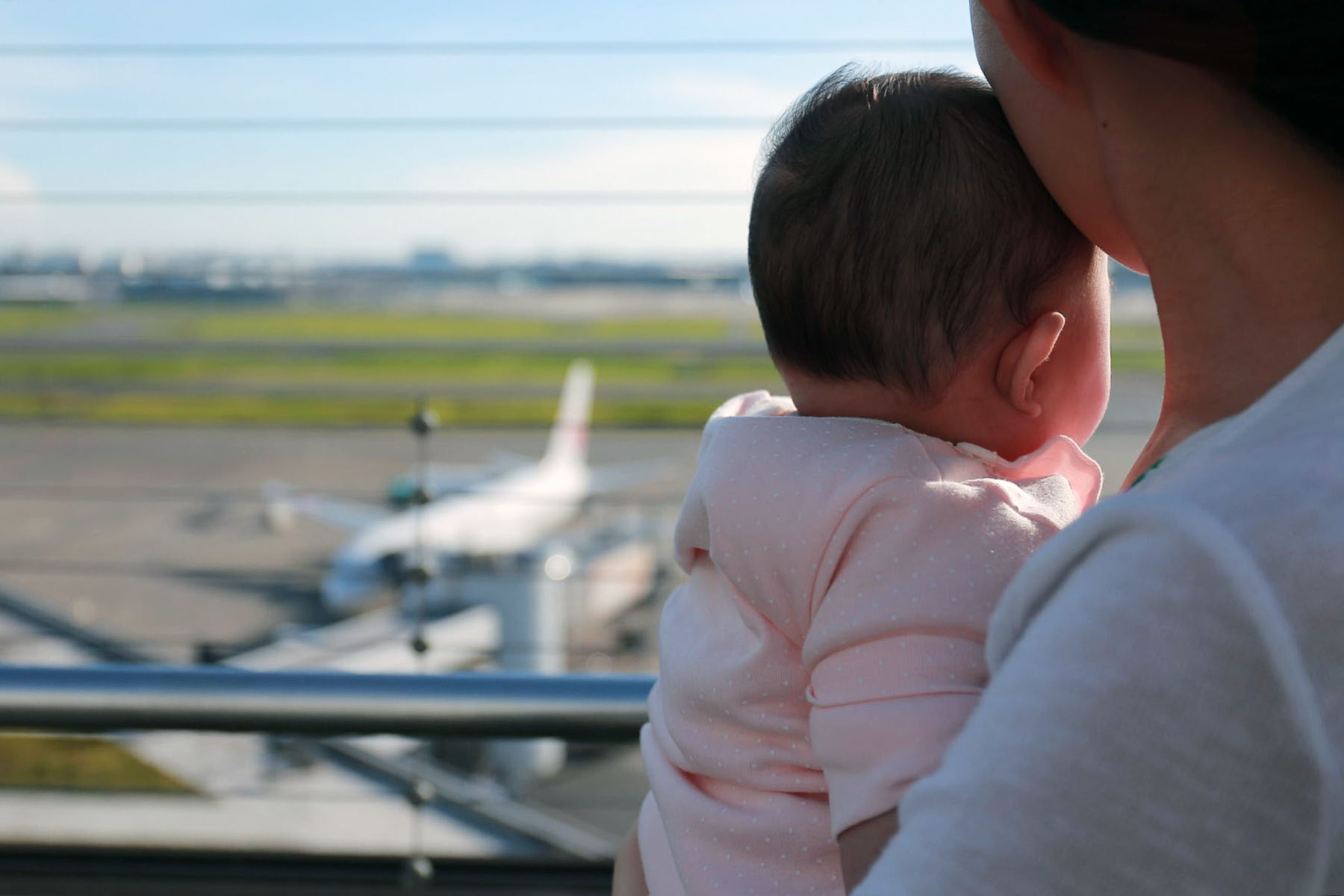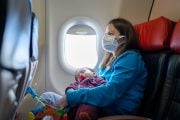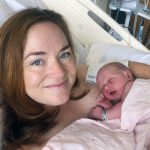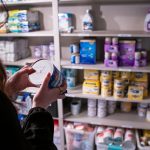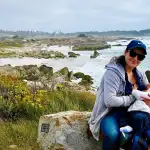As the summer travel season approaches, new parents may be navigating airports with their babies — and the complexities of keeping them fed. Despite federal guidelines for airport agents laying out how to treat nursing moms, stories about problem encounters with security sometimes go viral.
In 2023, actress and singer Keke Palmer said she was at Houston airport when she faced threats to throw out her 16 ounces of breast milk. A year earlier, engineer and science TV host Emily Calandrelli said U.S. Transportation Security Administration officers escorted her out of line and made her check her partially thawed ice packs, which are used to keep breast milk cool.
“It was a very traumatizing experience, and it also didn’t align with what the TSA policies were, which state that you’re allowed to have them for medically necessary purposes,” Calandrelli told States Newsroom.
In May 2022, she went on her first work trip away from her 10-week-old baby and was traveling from Los Angeles to Washington, D.C. Calandrelli planned on pumping after going through security at LAX, but TSA officers drilled her with questions about what the ice packs were for and said it wouldn’t have been an issue if her breast milk was already pumped.
“I spoke to three different males who worked at TSA, and I requested to speak to a woman but wasn’t able to,” she said.
Like Palmer, she shared the experience with her legions of social media followers. Calandrelli said the agency later apologized. TSA issued a statement shortly after the incident: “Our employees go through regular training to effectively engage and screen diverse traveler populations, including those who are breastfeeding and/or traveling with breast milk.”
Both women’s experiences violate TSA guidelines: Formula, breast milk, toddler drinks and baby food are allowed on planes and carry-ons in quantities greater than 3.4 ounces. Breast milk, formula and ice packs — along with other cooling accessories — are considered medically necessary. Passengers are advised to let TSA officers know they’re carrying these items when arriving at airport security.
-
Previous Coverage:
Even though these protections exist, many lactating parents still encounter problems during air travel, and these issues carry physical and emotional side effects, according to Tina Sherman, a doula and interim executive director at the U.S. Breastfeeding Committee.
“Lactating parents have to pump on a fairly regular basis to be able to continue to keep up their supply,” Sherman said.
When they can’t express milk or that cycle is interrupted, mothers experience pain or breast leaks, she said. In some cases, long delays in pumping can lead to mastitis — an infection that causes swelling in the breasts and cracked nipples. Emotionally, being prevented or delayed from expressing milk can make parents feel anxious, embarrassed and stressed, Sherman said.
Calandrelli’s plight two years ago led her to reach out to her local California congresswoman. U.S. Democratic Rep. Katie Porter first introduced legislation to strengthen existing protections for breastfeeding parents in August 2022.
“You have to have clear instructions and clear rules, and have people follow them in order for moms to be able to meet the standards,” Porter said. “There’s a lot of obstacles to breastfeeding. There’s a lot of challenges to feeding a baby and traveling with a baby.”
The Bottles and Breastfeeding Equipment Screening (BABES) Enhancement Act would require “hygienic handling of breast milk and baby formula” by TSA officers and private security companies. Porter’s bill would direct airport officials to “minimize the risk for contamination” of breast milk, formula and infant drinks, along with ice or freezer packs and related cooling accessories.
Under the proposal, the agency must consult with maternal health organizations — March of Dimes, Association of Maternal and Child Health Programs, American College of Obstetricians and Gynecologists, and the Society for Maternal-Fetal Medicine — to determine what policies and regulations need to be updated as pumping technology and best practices for breast milk storage evolve, she said.
BABES Act is an update to a 2016 law that required TSA training on special screening procedures for nursing parents. The original law also made it legal to carry larger amounts of breast milk, formula and infant drink — juice or purified water — in airports and on planes.
Reps. Maria Elvira Salazar, a Florida Republican, and Eric Swalwell, a California Democrat, are the lead co-sponsors in the House. Democratic Sens. Tammy Duckworth of Illinois and Mazie Hirono of Hawaii, along with GOP Sens. Steve Daines of Montana and Ted Cruz of Texas sponsored the bill in the upper chamber.
The bipartisan bill didn’t go anywhere last session, but Porter reintroduced the proposal. She said the bill is set to be heard in the Senate Commerce, Science and Transportation Committee soon.
As a mother of three, Porter is acutely familiar with the problems that come with traveling with infants. Her children are adolescents and teens now, but when they were babies, lactation stations in airports were uncommon. She said a flight attendant once told her to stop nursing her baby while the plane was still on the ground. Porter said she was angry and scared, but mostly “worried about my baby, who was hungry.”
As for her bill, she recognizes that TSA agents have a hard job. But the BABES Act will help them “have clear rules and better training so that they’re not put in challenging situations when they’re dealing with frustrated parents,” she said.
Making travel for lactating parents easier could chip away at larger stigma about breastfeeding, advocates said. More than 80% of babies are breastfed in infancy, and 58% are still getting some breast milk by the time they’re 6 months old, according to the U.S. Centers for Disease Control and Prevention.
Still, earlier this month, an ad for lactation cookies featuring a cooking star’s covered breasts and pregnant belly was temporarily removed from a Times Square billboard, according to The New York Times.
“Normalizing breastfeeding and lactation is really critical to families being able to meet their breastfeeding goals,” Sherman said.
Stateline is part of States Newsroom, a nonprofit news network supported by grants and a coalition of donors as a 501c(3) public charity. Stateline maintains editorial independence. Contact Editor Scott S. Greenberger for questions: [email protected]. Follow Stateline on Facebook and Twitter.
